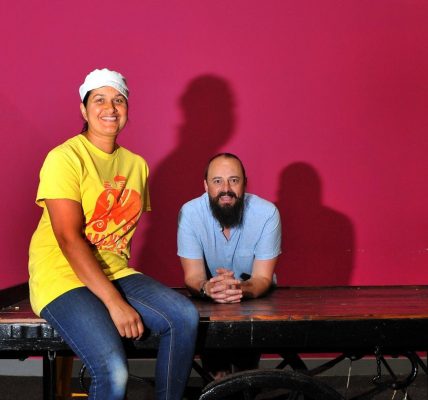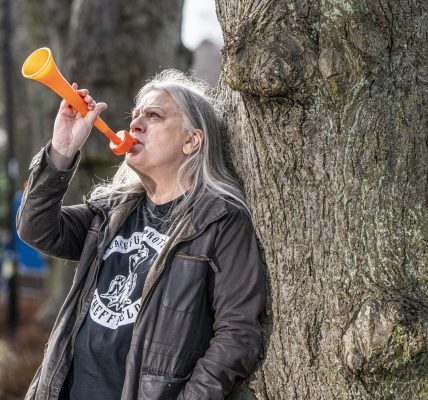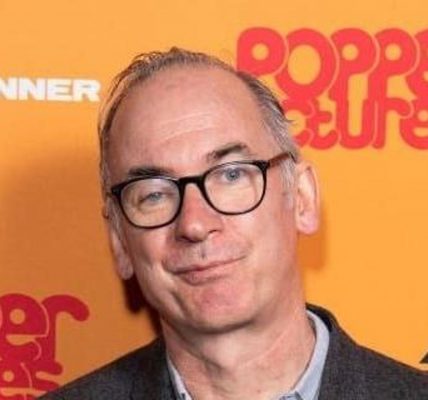How Ramps on the Moon is leading the way for deaf and disabled people in mainstream theatre
How Ramps on the Moon is leading the way for deaf and disabled people in mainstream theatre
This week marks the first anniversary of the start of these lockdown profiles of the theatres and companies in our region.
As this moment began to hove into view, I started to think about which company or building’s story I could tell to mark it.
I realised that I needed to tell the story of something that has made a cultural contribution to our region – that’s the point of the series – but a first anniversary required something that tells us something bigger about theatre itself. It was obvious: I needed to share the story of Ramps on the Moon.
Ramps, as it is known, is so important because of what it philosophically represents. It is about who theatre artists want to be, what we should aspire to be as audiences and what theatre companies can be if they try.
“Ramps on the Moon exists to enrich the stories we tell and how we tell them by normalising deaf and disabled people across mainstream theatre. Working as a consortium of theatre organisations, we are creating a better future for the theatre industry and representing the diversity of society both on and off the stage in mainstream theatre,” says Michele Taylor, director for change for Ramps on the Moon.
In a nutshell, Ramps is an Arts Council-funded consortium aiming to change the theatre sector by bringing more deaf and disabled people into the sector and making them more visible. See? The perfect story to share a year into these profiles.
It has had an extraordinary, positive impact on stages across the country, nowhere more so than in US. The consortium is made up of six theatres: Leeds Playhouse, Sheffield Theatres, along with Birmingham REP, Nottingham Playhouse, Theatre Royal Stratford East and the New Wolsey in Ipswich, with strategic partner the highly regarded Graeae Theatre.
Taylor says: “Ramps is about learning. All the partners are committed to organisational change to ensure that disabled and deaf people are part of their theatres and to sharing their learning as they go.”
You’ve probably seen one of the Ramps shows at either Leeds Playhouse or Sheffield Theatres. They are bold, brilliant shows that often reveal new truths about existing plays which in turn reveal truths about the world. The first show from the consortium, The Government Inspector, burst onto the scene in 2016 and was utterly joyous.
“I believe that a theatre industry that does not recognise the talent of disabled and deaf people is not a complete industry,” says Taylor.
“The theatre that is being made is not as exciting, innovative, colourful, joyous or truthful as it could – and should – be. Ramps on the Moon partners are challenging themselves to ensure that their work reflects the world as it really is and my job is to support them to do that and to ensure that we resource other theatres and companies. I love the ambition of Ramps to change the world and I love being a part of that.”
The consortium has made four epic shows to date. The Government Inspector was followed by Timberlake Wertenbaker’s Our Country’s Good, Winsome Pinnock’s One Under and the Covid curtailed Oliver Twist last year.
“There are more shows to come, but we are about more than the shows. There are projects and initiatives all year round providing, for example, ground-breaking development opportunities for disabled and deaf theatremakers, improving provision for disabled and deaf audiences and supporting the wider industry to increase its commitment to working with disabled and deaf people.”
It must be frustrating. The journey towards acceptance, let alone equality, has been a long one for deaf and disabled actors. We have brilliant companies here in US like Mind the Gap, doing sterling work to redress the balance, but many feel the change to seeing shows featuring these creatives has been a long time coming.
The truth is it is frustrating for audiences too – they have been deprived of the experience of seeing some creatively fulfilling work.
“The plan from the beginning has been that each partner would make a big show which would then tour to all the other partner venues. This has been thrown somewhat by the pandemic, but four partners have made shows, three of which have toured. All of the shows are made by mixed companies with at least half the company made up of deaf or disabled people and the traditional access tools – captioning, audio description and BSL interpretation have been built into the production from the very beginning.
“All of the shows have been defining and have shown what is possible as well as providing plenty of opportunities to learn. Leeds Playhouse made Oliver Twist last year and although Covid meant the show didn’t tour, Amy Leach’s production was really well received and was so exciting. All four shows have been extraordinary and Sheffield Theatres are chomping at the bit to have their turn.”
With the pandemic having a devastating impact on our cultural lives, there are those who fear being at the sharp end. “The work we are doing is more important than ever right now,” says Taylor.
“Disabled people are anxious that working with us will be seen once again as ‘specialist’ or additional and that the enormous advances theatres made pre-Covid will be lost in the work of recovering from the pandemic,” says Taylor.
“We are central to the recovery, not peripheral and it is vital that disabled people’s work continues to be valued.”
The Government Inspector, 2016, presented by Birmingham REP, the production was nominated for an Olivier Award.
The Who’s Tommy, 2017, the New Wolsey Ipswich presented the show featuring 22 actors and based on the 1969 concept album with music and lyrics by Pete Townshend.
Our Country’s Good. 2018, Nottingham Playhouse presented this epic touring production.
Oliver Twist, 2020. Directed at Leeds Playhouse by Amy Leach, the production received great reviews and was due to tour but was stopped in its tracks by the pandemic.










